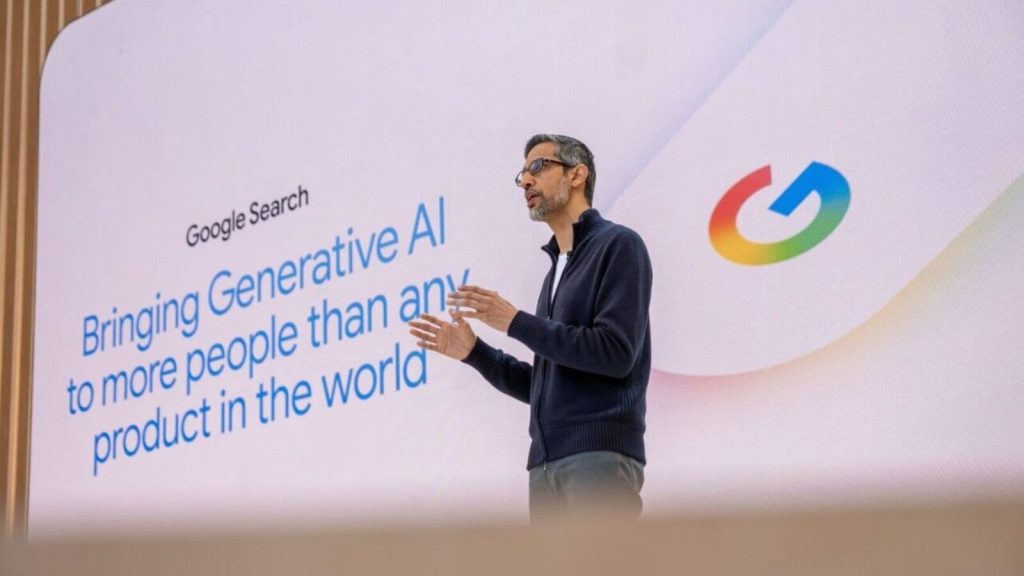At least a dozen new companies are pouring millions of dollars into software meant to help brands prepare for a world in which customers no longer browse the web and instead rely on ChatGPT, Perplexity and other artificial-intelligence chatbots to do it for them.
The startups are developing tools to help businesses understand how AI chatbots gather information and learn how to steer them toward brands so that they appear in AI searches. Call it the search-engine optimization of the next chapter of the internet.
“Companies have been spending the last 10 or 20 years optimizing their website for the ‘10 blue links’ version of Google,” said Andrew Yan, co-founder of Athena, one of the startups. “That version of Google is changing very fast, and it is changing forever.”
Companies large and small are scrambling to figure out how generative AI tools treat their online content—a boon to this new crop of startups, which say they are adding new customers at a clip. The customer interest is an early sign of how AI is transforming search, and how companies are trying to get ahead of the changes.
Yan left Google’s search team earlier this year when he decided traditional search wasn’t the future. Athena launched last month with $2.2 million in funding from startup accelerator Y Combinator and other venture firms.

View Full Image
Athena’s software looks under the hood of different AI models to determine how each of them finds brand-related information. The software can track differences in the way the models talk about a given brand and recommend ways to optimize web content for AI.
Yan said the company now has more than 100 customers around the world, including the online-invitation firm Paperless Post.
Google executives and analysts don’t expect traditional search to disappear. The company, which handles as much as 90% of the world’s online searches, has been working to incorporate AI features into its flagship search engine and anticipates people will continue to use it alongside other tools such as Gemini, its AI model and chatbot.
Yet the company, a unit of Alphabet, has been under pressure to compete with OpenAI’s ChatGPT and other AI upstarts that threaten its core business. It risks losing traffic and advertising revenue if users shift to AI-driven alternatives.
Chief Executive Sundar Pichai has said that AI Overviews, a feature that summarizes search results at the top of the page, has grown significantly in usage since the company launched it in 2024. Google earlier this year began rolling out AI Mode, which responds to user queries in a chatbot-style conversation with far fewer links than a traditional search.

View Full Image
Compared with traditional search, chatbot queries are often longer and more complicated, requiring chatbots to draw information from multiple sources at once and aggregate it for the user. AI models search in a number of ways: One platform might pull information from a company website, while another might rely more heavily on third-party content such as review sites.
Of the startups helping companies navigate that complexity, Profound has raised more than $20 million from venture-capital firms including Kleiner Perkins and Khosla Ventures.
The company is building its platform to monitor and analyze the many inputs that influence how AI chatbots relay brand-related information to users. Since launching last year, Profound has amassed dozens of large companies as customers, including fintech company Chime, the company said.
“We see a future of a zero-click internet where consumers only interact with interfaces like ChatGPT, and agents or bots will become the primary visitors to websites,” said co-founder James Cadwallader.
Venture-capital fund Saga Ventures was one of the first investors in Profound. Saga co-founder Max Altman, whose brother is OpenAI CEO Sam Altman, said interest in the startup’s platform has exceeded his expectations.
“Just showing how brands are doing is extremely valuable for marketers, even more than we thought,” he said. “They’re really flying completely blind.”
Saga estimates that Profound’s competitors have together raised about $21 million, though some haven’t disclosed funding.
The value of such companies is still infinitesimal compared with that of the search-engine optimization industry, which helps brands appear in traditional searches and was estimated at roughly $90 billion last year.
SEO consultant Cyrus Shepard said he did almost no work on AI visibility at the start of the year, but now it accounts for 10% to 15% of his time. By the end of the year, he expects it might account for as much as half.
He has been experimenting with startup platforms promising AI search insights, but hasn’t yet determined whether they will offer helpful advice on how to become more visible in AI searches, particularly as the models continue to change.
“I would classify them all as in beta,” he said.
Clerk, a company selling technology for software developers, has been working with startup Scrunch AI to analyze AI search traffic. Alex Rapp, Clerk’s head of growth marketing, said that between January and June, the company saw a 9% increase in sign-ups for its platform coming from AI searches.
Scrunch this year raised $4 million. It has more than 25 other customers and is working on a feature to help companies tailor the content, format and context of their websites for consumption by AI bots.
“Your website doesn’t need to go away,” co-founder Chris Andrew said. “But 90% of its human traffic will.”
Write to Katherine Blunt at katherine.blunt@wsj.com

